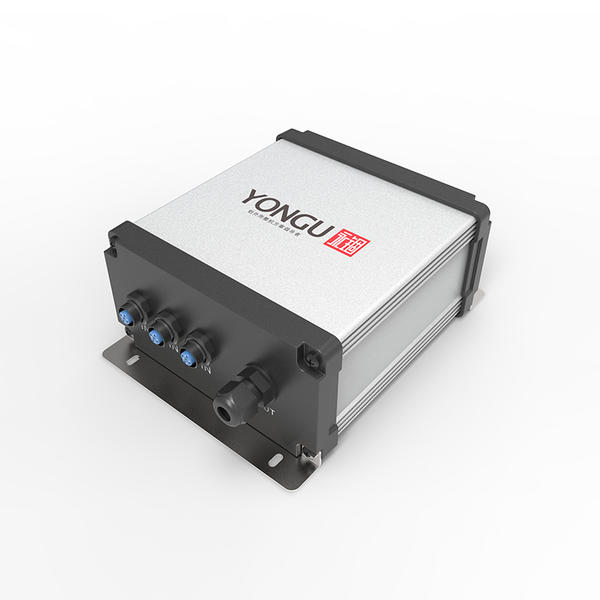Introduction
IP68 waterproof enclosures are specifically designed to provide a high level of protection against water and dust ingress. The IP68 rating signifies that the enclosure is completely dust-tight and can withstand continuous immersion in water beyond 1 meter. This level of protection makes IP68 enclosures ideal for use in industries where exposure to moisture, dust, and other contaminants is common.
In various industries, such as telecommunications, electronics manufacturing, and outdoor installations, the use of IP68 waterproof enclosures has become indispensable. These enclosures not only protect sensitive equipment from water damage but also ensure the longevity and reliability of the components housed within them.
Understanding IP Ratings
To understand the significance of IP68 waterproof enclosures, it's essential to familiarize oneself with the IP ratings system. IP stands for "Ingress Protection" and is followed by two digits. The first digit indicates the level of protection against solid objects, while the second digit denotes the degree of protection against water.
The IP68 rating is one of the highest levels of protection against water ingress. The "6" in the IP rating indicates complete protection against dust, while the "8" signifies that the enclosure can withstand continuous immersion in water under specified conditions. This makes IP68 enclosures suitable for use in environments where exposure to water is unavoidable.
Features of IP68 Waterproof Enclosures
IP68 waterproof enclosures are characterized by several key features that make them highly effective in protecting enclosed equipment. These features include the use of durable materials, advanced seal designs, and resistance to environmental factors.
The material composition of IP68 enclosures is crucial in ensuring their durability and resistance to corrosion. These enclosures are typically constructed from materials such as stainless steel, aluminum, or high-grade plastics, which offer excellent strength and longevity.
In addition to robust materials, IP68 waterproof enclosures are equipped with advanced seal designs to prevent water ingress. These seals are meticulously engineered to create a tight barrier against moisture, ensuring that the internal components remain dry and functional even in the harshest conditions.
Furthermore, IP68 enclosures are designed to withstand a wide range of environmental factors, including temperature fluctuations, UV exposure, and chemical exposure. This ensures that the enclosed equipment remains protected and operational regardless of the external conditions.
Applications of IP68 Waterproof Enclosures
The versatility of IP68 waterproof enclosures makes them suitable for a wide range of applications across various industries. In the electronics industry, these enclosures are commonly used to protect sensitive electronic components from water damage and dust ingress. Electronic devices such as outdoor sensors, control panels, and communication equipment often require reliable protection from environmental elements, making IP68 enclosures an ideal solution.
In outdoor environments, where exposure to moisture, rain, and extreme temperatures is common, IP68 waterproof enclosures play a crucial role in safeguarding equipment such as outdoor lighting fixtures, surveillance cameras, and electrical connections. These enclosures provide peace of mind, knowing that critical infrastructure remains protected and operational even in harsh weather conditions.
Moreover, IP68 enclosures are extensively used in marine and automotive applications. In marine environments, where equipment is constantly exposed to saltwater and humidity, IP68 enclosures ensure the longevity of navigation systems, marine electronics, and underwater sensors. Similarly, in automotive settings, these enclosures protect onboard electronics, sensors, and electrical connections from water intrusion, ensuring the reliability and safety of vehicles.
Considerations When Choosing an IP68 Waterproof Enclosure
When selecting an IP68 waterproof enclosure for a specific application, several factors must be taken into consideration to ensure optimal performance and compatibility.
Firstly, size and dimension requirements must be carefully evaluated to ensure that the enclosure adequately accommodates the equipment it will house. It's essential to consider not only the size of the equipment but also any additional space needed for cable management and ventilation.
Environmental conditions also play a significant role in determining the suitability of an IP68 enclosure. Factors such as temperature fluctuations, exposure to chemicals, and UV radiation must be taken into account to select an enclosure that can withstand the specific conditions of the installation environment.
Furthermore, customization options should be considered to meet the unique requirements of the application. Many manufacturers offer customization services such as additional cable entries, mounting options, and color choices to tailor the enclosure to the specific needs of the project.
Conclusion
IP68 waterproof enclosures are indispensable components in various industries where protection against water and dust ingress is critical. With their robust construction, advanced seal designs, and resistance to environmental factors, these enclosures provide reliable protection for sensitive equipment in demanding environments. By understanding the features, applications, and considerations for choosing IP68 enclosures, businesses can ensure the safety, reliability, and longevity of their equipment investments.




